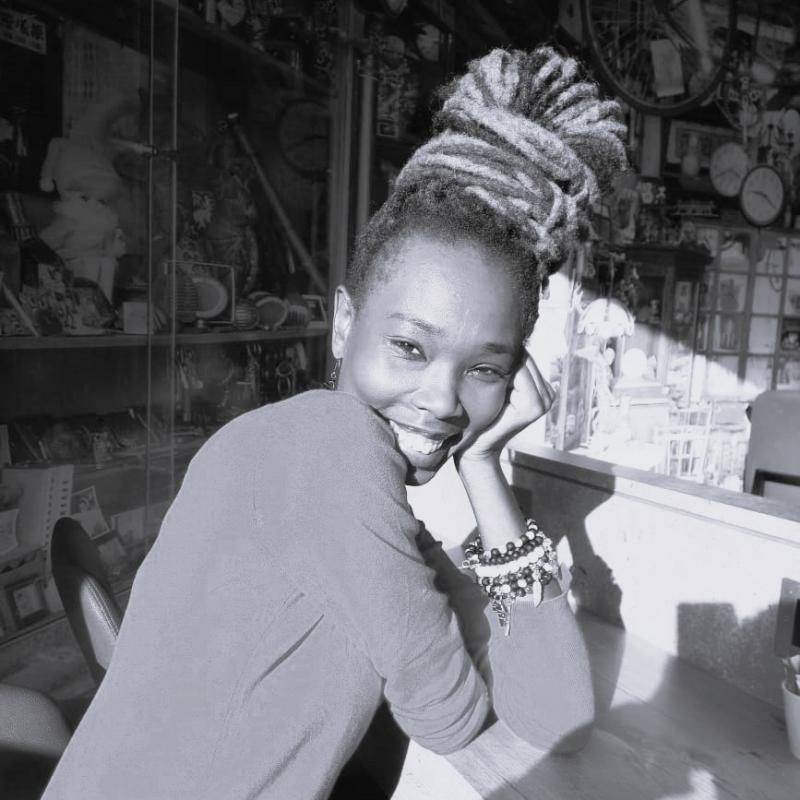Breadcrumb
How can research and evidence be used effectively to enhance educational structures, systems, and practices? What role could they play in achieving the goal of ensuring uniformly high-quality learning outcomes for every child in Uganda's primary schools? These are among the questions Agnes Nakirya is beginning to explore through the MSc in Public Policy Research.
“I’ve always been motivated by a desire to break down walls between different groups in society. This inspired my decision to study law at university originally as I felt this would be a tool to advocate for those whose plight was invisible or ignored.”
After graduating, Agnes worked as an advocacy officer for a charity providing legal support to workers in Uganda’s informal sector. These workers, who are often unrecognised and unregistered, represent close to 75 per cent of all employed people in Uganda, with 85 per cent being women. Agnes’ work involved lobbying the government and devising impactful communication strategies to shine a spotlight on the plight of vulnerable workers, whose socio-economic plights often places them beyond the reach of meaningful legal protections.
Agnes then moved to another civil society organisation working on access to justice in prisons, designing and delivering projects to provide free legal advice for people who could not afford legal representation, who make up for more than 70 per cent of those incarcerated.
Having worked in the civil society space for several years, Agnes understood the challenges that come with trying to advocate for policy reform for marginalised groups in society from the outside looking in. She began to see the value of a course like the Master of Public Policy (MPP) at the Blavatnik School of Government to gain a deeper understanding of the dynamics at play when trying to make change happen from inside government.
“I came to the MPP because I wanted to understand what opportunities and constraints existed for reform in Sub-Saharan Africa and Uganda in particular. Studying the MPP made me realise that although human rights and social justice that had been the foundations of my legal and advocacy work are important and necessary in the policy process, they are not the only considerations for policymakers. They are constantly having to make trade-offs in their work. While this did not waver my resolve for policy reform, this gave me a lot of empathy for the dilemmas that policymakers face.”
After graduating with her master's, Agnes returned to Uganda as Deputy Team Leader of a educational reform project embedded within the Ministry of Education and Sports, and working with up to 28 local governments.
“This experience and interactions with government stakeholders at the central, local government and school levels, allowed me to understand, in practice, the insider experiences and perspectives of those who lead on policymaking, implementation and monitoring. I was also able to observe how government actors interact with each other and with non-governmental actors seeking to contribute to reform. Everything I learned on the MPP came into action and I started to see that reform attempts were focussed on pursuing ‘things’ and ‘products’ and not putting the people they are trying to target at the centre of their efforts.”
Agnes found out about the new MSc in Public Policy Research when she’d been spending some time thinking about applying for a PhD. This felt like perfect timing. As she had not previously undertaken formal research training, she saw it as a great opportunity to delve deeper into the issues that matter to her – public sector reform and management. A particular draw was the MSc’s focus on producing impactful research that can meaningful be used by governments and policymakers to shape public policy and reform.
Since starting the course, Agnes has not been disappointed. Under the guidance of supervisor Professor Claire Leaver and the MSc teaching team, Agnes and five other MSc students have begun to build the training they need to produce academically rigorous and impactful policy research. From learning about research methodologies and how to ask the right questions to building knowledge of how to communicate findings effectively to a policy audience, the course considers the broader challenges policy researchers face when putting their evidence into practice.
“One of the factors that drove me to return to the Blavatnik School of Government is the supportive culture and environment that is available for the students. The faculty has been so open and supportive and have been providing progressive feedback throughout the first term, which has been great as we’re newer to research. As we’re a small group, the cohort has also been very supportive of each other and we are building to strengthen our interactions with the MPP and DPhil students too, as the MSc is in its first year and is sandwiched between the two courses!”
Though Agnes hadn’t previously thought she would end up doing research, her experiences in government and civil society in Uganda saw one common issue become apparent:
“Many questions and conversations about African governance are often externally led. I had the contextual knowledge but lacked the skills to be able to independently lead research at scale. I want to be part of conversations about reform and change in my own context and ensuring that Africa plays a central role in leading on research and shaping context specific solutions to its own policy problems. I want a seat at the table where I can contribute meaningfully to seeing Uganda and Africa’s people prosper, thrive and live to their full potential. To do this, I will continue to find spaces and roles that can allow me to pursue reform and behavioural change in the public sector.”
Agnes, therefore, describes being back at the School as a “double blessing” which she does not take for granted.
January 2023.

